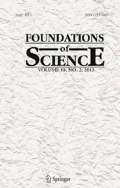Abstract
Mark Coeckelbergh’s mobilisation of Wittgensteinian language games makes an important contribution to exposing the social dimension of machine use. This commentary asks to what extent this social dimension of meaning and the wider imaginary that forms around technological objects on account of the transparency of language is also part of a technological “confidence trick”. It suggests that philosophical anthropology, especially the perspectives developed by Günther Anders and Helmut Plessner, can offer additional resources to trace and critique the wider ownership structures and social relations of power that Mark Coecklebergh’s work productively exposes. It argues that language games alone cannot fully account for the hidden social relations (e.g. training data of a language algorithm) that are habitually presented to us as abilities of “smart”, “intelligent” machines. Here a language that defamiliarizes machines, tries to make them visible by using exaggerated, pessimistic and object-oriented perspectives can perhaps help to make these power-relationships more comprehensible, “obvious” and thereby resistible and open to debate.
Similar content being viewed by others
References
Althusser, L. (1971). Ideology and Ideological State Apparatuses (Notes towards an Investigation). Lenin and philosophy (B. Brewster, Trans.), pp. 121–173. London: NLB.
Anders, G. (2002 [1956]). Die Antiquiertheit des Menschen 1. Munich: C.H. Beck.
Anders, G. (2003 [1981]). Die Atomare Drohung. Munich: C.H. Beck.
Butler, J. (1997). Excitable Speech: A Politics of the Performative. London: Routledge.
Coeckelbergh, M. (2018). Technology Games: Using Wittgenstein for Understanding and Evaluating Technology. Science and Engineering Ethics, 24, 1503–1519.
Coeckelbergh, M., & Funk, M. (2018). Wittgenstein as a Philosopher of Technology: Tool Use, Forms of Life, Technique, and a Transcendental Argument. Human Studies, 41(2), 165–191.
Constanza-Chock, S., & Wilson, E. (2012). New Voices on the Net? The Digital Journalism Divide and the Costs of Network Exclusion. In L. Nakamura & P. Chow-White (Eds.), Race after the internet (pp. 246–268). New York: Routledge.
Müller, C. (2015). Desert Ethics: Technology and the Question of Evil in Günther Anders and Jacques Derrida. Parallax, 21(1), 42–57.
Müller, C. (2016). Prometheanism: Technology, Digital Culture and Human Obsolescence. London: Rowman & Littlefield International.
Müller, C. (2019). From Radioactivity to Data Mining: Günther Anders in the Anthropocene. Thesis Eleven, 153(1), 9–23.
Plessner, H. (2019 [1928]). Levels of Organic Life and the Human (M. Hyatt, Trans). New York: Fordham.
Stiegler, B. (2006). Anamnēsis and Hypomnēsis: The Memories of Desire. In L. Armand & A. Bradley (Eds.), Technicity (F.-X. Gleyzon, Trans.), pp. 15–41. Prague: Litteraria Pragensia.
Author information
Authors and Affiliations
Corresponding author
Additional information
Publisher's Note
Springer Nature remains neutral with regard to jurisdictional claims in published maps and institutional affiliations.
Rights and permissions
About this article
Cite this article
Müller, C.J. Are Language Games Also Confidence Tricks? Technology as Embodied Power and Collective Disempowerment. Found Sci 27, 875–880 (2022). https://doi.org/10.1007/s10699-020-09752-3
Accepted:
Published:
Issue Date:
DOI: https://doi.org/10.1007/s10699-020-09752-3




